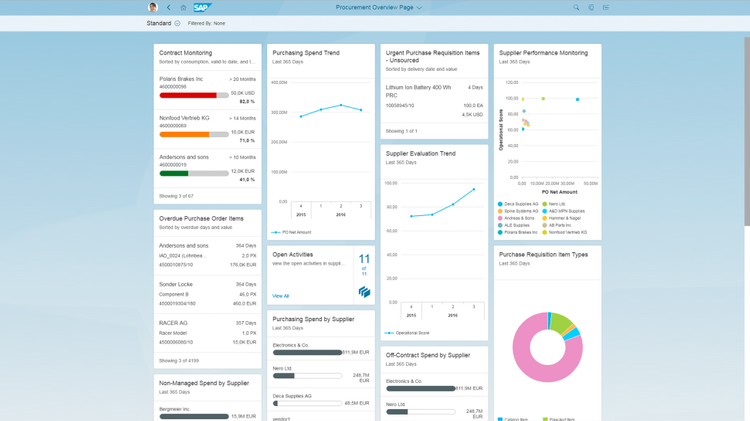NetSuite vs. SAP: Comparison Guide
Enterprise Resouce Planning (ERP) software is an essential tool to help your business automate manual processes and streamline workflows across varying departments. When searching for an ERP software, you likely came across NetSuite and SAP. These solutions provide full-featured platforms capable of handling numerous organizational functions, including finance, HR, supply chain, and customer relationship management.
Although they offer similar capabilities, NetSuite and SAP diverge in areas of strategic importance that may sway your decision. SAP provides several middle-market ERPs that compete with each other, while NetSuite remains steadfastly committed to its singular product.
In this analysis, we’ll dissect the offerings of NetSuite and two SAP systems: SAP S/4HANA Cloud and SAP Business One. Through this exploration, we aim to empower you with the insights needed to make an informed decision that best aligns with your business goals and growth strategies.
If you’d like, feel free to skip ahead to our comparisons of NetSuite vs SAP software:
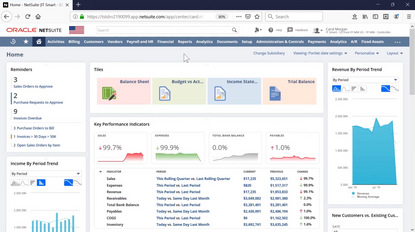
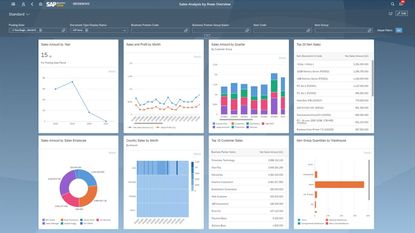
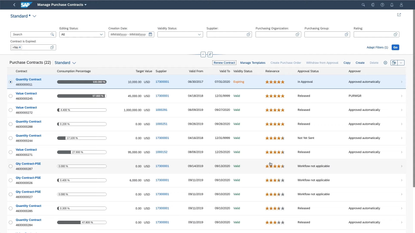
What is NetSuite?
NetSuite has been one of the leading integrated cloud business software suites since the company was formed in 1998. Due to its integration of business accounting, CRM, and eCommerce capabilities, the solution is routinely considered to be one of the best enterprise resource planning software (ERP software) options on the market.
What is SAP?
SAP has been a leader in business applications since the launch of its first ERP system in 1972. Today, the company has over 425,000 customers in over 180 countries and employs over 100,000 people worldwide. They offer dozens of ERP solutions for seemingly every size of business and every type of industry, and as of 2021, unveiled the first step toward creating the world’s largest business network with SAP Business Network.
Key Considerations
Comparing SAP vs NetSuite is like looking into a Venn diagram. While the software offerings from both companies overlap in many ways, they also have their strengths and weaknesses. While technically an industry-neutral solution, NetSuite caters to manufacturing and supply chain businesses. SAP, on the other hand, has traditionally always had solid sales and professional service capabilities.
Before getting started, you should assess your business processes and needs to ensure you choose the best solution that aligns with your company’s needs.
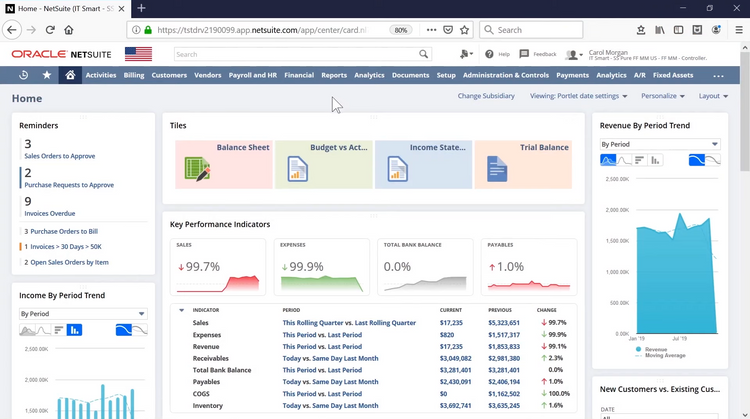
NetSuite vs SAP Business One
Most SAP products, such as SAP Business One, were originally intended to be on-premise. However, SAP has evolved and now has a large library of cloud ERP software that can be externally hosted if the user chooses, such as SAP Business One.
Alternatively, NetSuite was designed to be a cloud ERP system from its inception. As such, there is only one version of NetSuite, which makes accessibility issues across multiple devices less prevalent than some SAP options.
Some users claim SAP Business One lacks flexibility. Many SMBs desire an ERP that lets them pick and choose the modules or functions they want and leave out anything else. SAP Business One does not give you this choice, except for being able to drop the CRM application.
SAP Business One has a reputation as a proven software solution backed by a more reputable developer. Due to this, it may be perceived as having more stability and experience in ERP compared to NetSuite. However, Oracle’s acquisition of NetSuite should change this perception down the road. The ERP that works best for your business will likely depend on affordability, reliability, scalability, and performance.
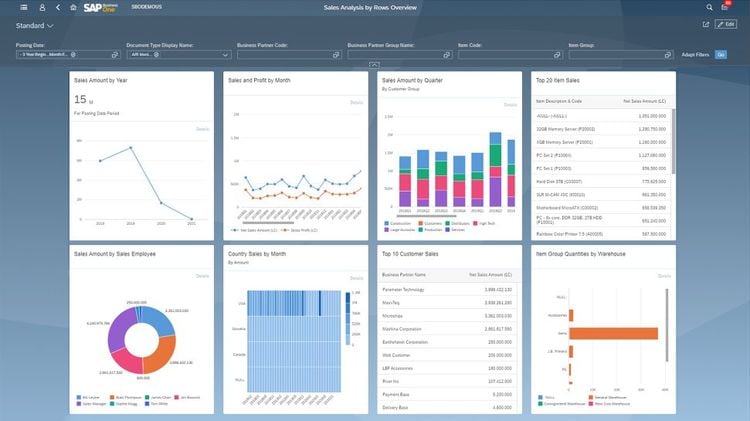
NetSuite vs SAP S/4HANA
SAP S/4 HANA stands for Suite 4 HANA, which is a new generation ERP solution that runs on SAP HANA database architecture. Deployable in the cloud or on-premise, SAP S/4HANA is designed to drive instant value across all lines of business and industries.
When it comes to business intelligence and reporting tools, SAP S/4HANA has an advantage over NetSuite. Analytics, data modeling, and database management are all strong suits of SAP’s HANA in-memory relational database management system.
Additional capabilities of SAP S/4HANA include machine learning-enabled business processes, real-time embedded analytics, automated group-wide processes, live material requirements planning, and delivery delay prediction and intelligent remediation.
Overall, when comparing NetSuite vs SAP S/4HANA, it’s important to keep the needs of your industry in mind. Both systems will be able to handle your manufacturing and supply chain management needs. SAP S/4HANA offers more marketing and HR capabilities than NetSuite.
